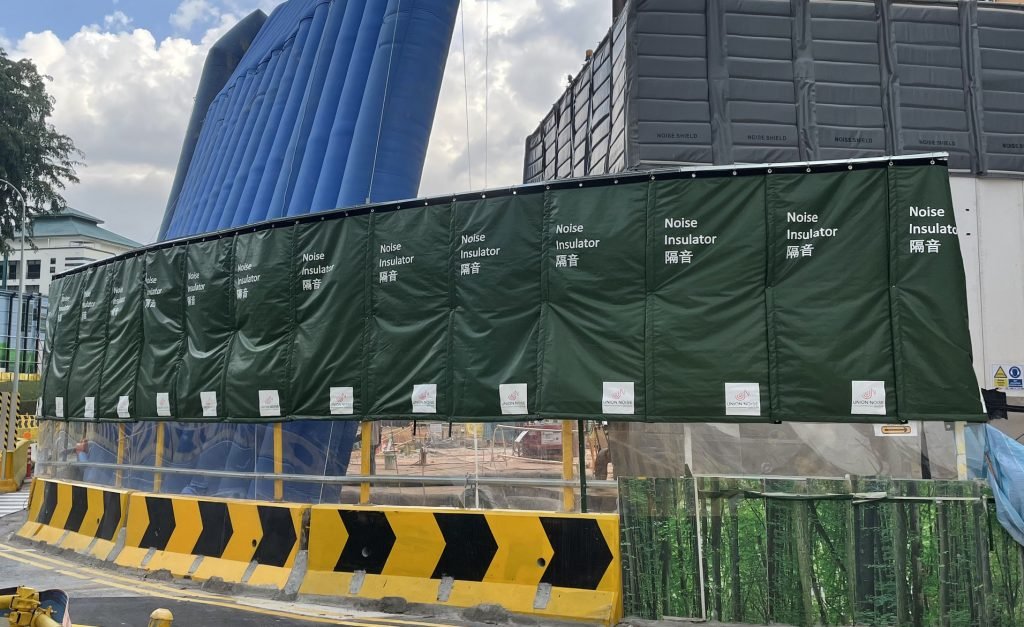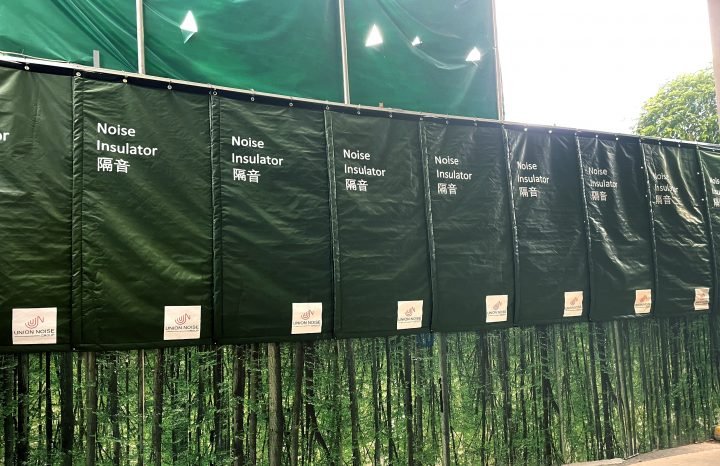
Construction is one of the cornerstones of modern society, but it comes with a less-than-desirable side effect — noise pollution. When it’s time to build or renovate a structure that needs to keep the peace, understanding and selecting the right noise barrier sheets is vital.
This guide is tailored to help construction professionals, acoustic engineers, architects, and project managers make informed decisions when it comes to noise reduction in their projects.
Types of Noise Barrier Sheets
Noise barrier sheets come in various forms, each with its own set of characteristics that can impact their effectiveness in reducing sound. Here is a breakdown of two fundamental types:
● Absorptive vs. Reflective Materials
Noise barriers can absorb sound energy or reflect it towards the source. Absorptive materials dampen the noise level by converting sound energy into heat, while reflective materials simply bounce the noise back.
The choice between the two depends on the specific acoustical requirements of the structure and its environment.
● Transparent vs. Opaque Sheets
Transparency in noise barrier sheets is a quality that’s sought after in certain architectural designs, particularly when visibility and light are important considerations. However, transparent barriers may have different sound-absorbing capacities than opaque ones due to the materials used in their construction.
Opaque barriers, on the other hand, provide a more consistent performance but may not be as visually appealing or practical in some situations.
Key Specifications to Consider
Understanding how technical specifications impact the performance of noise barrier sheets is crucial to making the right purchasing decisions. Consider these key factors:
● Sound Transmission Class (STC) Rating
The STC rating represents the sheet’s ability to block sound transmission through a partition. The higher the STC rating, the better the soundproofing capabilities. It’s essential to match the STC rating of the barrier sheet with the expected noise levels in its intended environment.
● Noise Reduction Coefficient (NRC)
NRC measures the sound absorption capacity of materials. A high NRC indicates that a material is effective at absorbing sound rather than reflecting it, making it an excellent choice for reducing reverberation and improving the acoustics within a space.
● Weight Per Square Foot
The density of a noise barrier sheet is critical to its performance. Heavier sheets are generally more effective at reducing noise, but they can also be more challenging to work with and may require additional structural support.
● Fire Rating
Safety is non-negotiable in construction. Noise barrier sheets should have a suitable fire rating, especially in spaces that are required to meet specific fire safety regulations. Understanding and selecting sheets with the right fire rating is a critical aspect of the specification process.
Installation and Maintenance Tips
Proper installation and regular maintenance are essential for the long-term effectiveness of noise barrier sheets.
● Proper Installation Techniques
The efficiency of a noise barrier sheet depends not only on its intrinsic performance but also on how it is installed. Correct techniques, such as sealing all edges and using the right fasteners, ensure that the barrier provides the anticipated level of noise reduction.
● Maintenance Requirements for Longevity
Regular inspections and necessary upkeep of noise barriers guarantee they continue to function optimally. Look for signs of wear, damage, and deterioration. Also, consider the environmental conditions that could affect the materials of the sheet over time, and take proactive measures to protect the barrier, like applying weather-resistant coatings or treatments.
Benefits of Using Noise Barrier Sheets
The strategic use of noise barrier sheets offers a myriad of advantages. Here are some benefits that should be on your radar:
● Noise Reduction Effectiveness
The most obvious benefit of barrier sheets is their ability to reduce noise levels. Whether the goal is to improve worker concentration or to meet occupational health and safety standards, the right noise barrier can make a significant difference.
● Improved Indoor Environment Quality
Higher quality acoustics within an indoor space directly affect user comfort and productivity. Barrier sheets contribute to creating more pleasant work and living environments by reducing unwanted noise levels and reverberation.
● Regulatory Compliance
Many industries, particularly those involved in the medical, hospitality, and education sectors, are subject to stringent regulatory requirements regarding indoor noise levels. Keeping up-to-date with the latest regulations and choosing appropriate noise barrier solutions is critical for compliance and operational peace of mind.
Conclusion
The right noise barrier sheet is essential for creating a comfortable and compliant indoor environment. Knowing the different types of materials, key specifications to consider, as well as proper installation and maintenance techniques can help construction professionals make informed decisions when selecting noise barrier sheets.
With this guide, you are now equipped with the knowledge necessary to choose the best solution for your specific project needs. Keep in mind that every project is unique, so it’s crucial to consult with experts and conduct thorough research before making any final decisions.
Hebei Jinbiao is a leading company in Noise Barrier products and Fencing products in Singapore. We guarantee to provide you with the most high-quality Sound Barrier and Fencing products along with our dedicated assistance. Do not hesitate to contact us. We are looking forward to helping you solve your noise issues, safety issues and protecting you from noise pollution as well as ensuring your safety.

